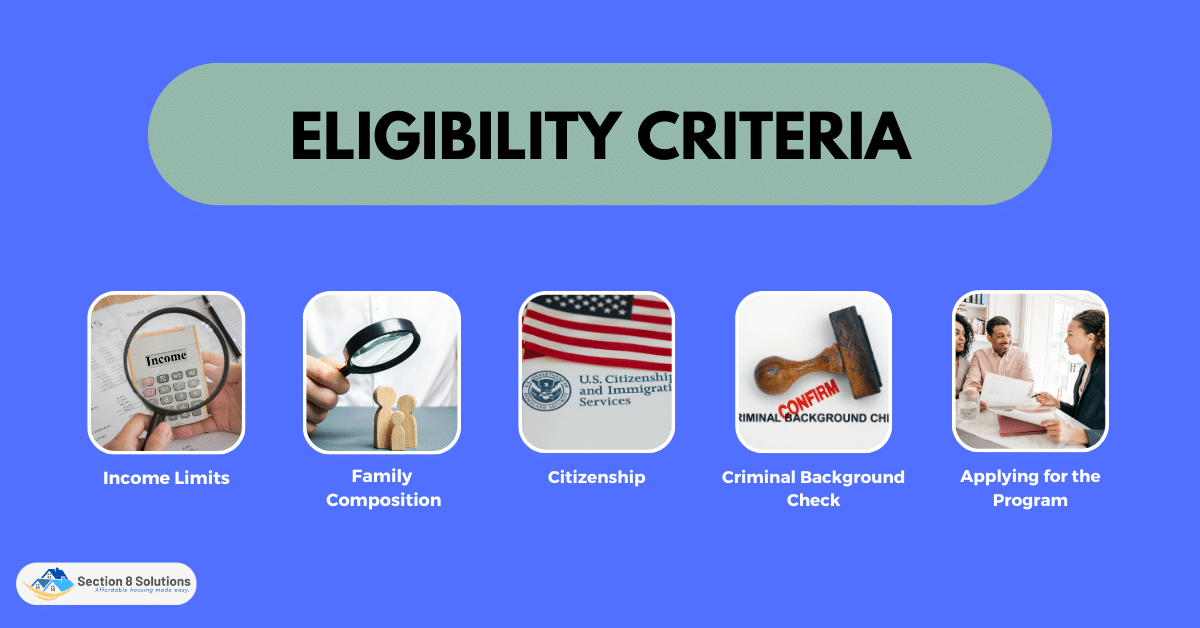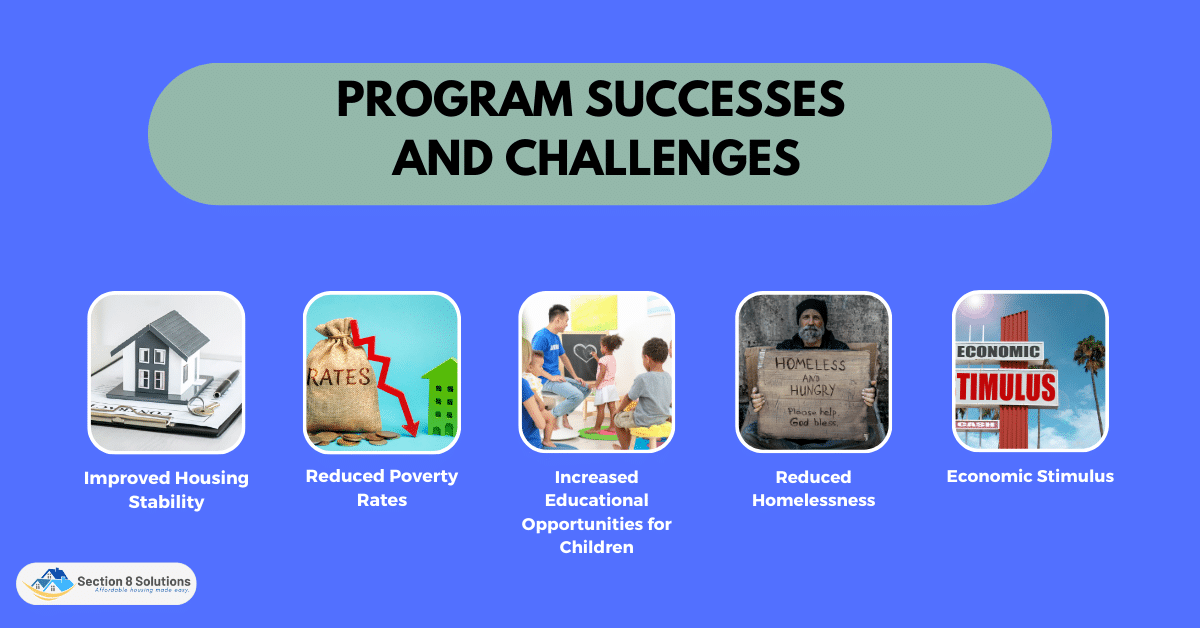Fort Worth Section 8 Housing Programs help low-income families find safe, affordable housing. Participants get rental subsidies to live in privately owned homes that fulfill program conditions. Section 8 Housing Programs help Fort Worth people achieve stability and quality of life by providing financial assistance and housing alternatives.
In this blog series, we explore the eligibility, and functioning of Housing Choice Vouchers, landlord participation, and the impact of Section 8 Housing Programs in fostering stability and improving lives.

What are Section 8 Housing Programs?
Section 8 Housing Programs are instrumental initiatives designed to address the critical issue of affordable housing for low-income individuals and families. These programs originated from the U.S. Department of Housing and Urban Development (HUD) and have been implemented locally in Fort Worth to cater to the specific needs of the community.
Administered by HUD, Section 8 Housing Programs in Fort Worth are overseen by local public housing authorities (PHAs). These PHAs collaborate with property owners and tenants to ensure the effective operation of the program. The PHAs receive federal funding from HUD and are responsible for the distribution of housing vouchers and rental subsidies to eligible participants.
Section 8 Housing Programs provide affordable housing, reduce homelessness, and stabilize vulnerable populations. The programs help low-income families afford safe, adequate housing by subsidizing rent. This aid helps families find acceptable housing and allows them to spend more on food, healthcare, and education.

Eligibility Criteria
To participate in the Section 8 Housing Programs in Fort Worth, individuals and families must meet certain eligibility criteria. These criteria are designed to ensure that assistance is provided to those with the greatest need and that resources are allocated effectively.

- Income Limits: Income is key to qualifying. The area’s median income determines the household income threshold for applicants. The number of family members and their combined income determines the income restrictions.
- Family Composition: Another element is household makeup. Section 8 Housing Programs serve singles, families, seniors, and disabled people. Household size and connection influence eligibility.
- Citizenship or Eligible Immigration Status: Fort Worth Section 8 Housing Programs need U.S. citizens or qualifying immigrants. Applications usually require citizenship or qualified immigration status.
- Criminal Background Check: Adult household members are criminally screened by housing authorities. Drug-related or violent convictions might affect eligibility.
- Applying for the Program: The Fort Worth public housing authority (PHA) accepts Section 8 Housing Program applications. The PHA manages applications and eligibility. An application form and accompanying paperwork, such as identification, proof of income, birth certificates, social security numbers, and other PHA-requested information, are usually necessary.
Section 8 Housing Programs have waiting lists owing to the demand for affordable housing. Thus, qualifying does not ensure program enrollment. The PHA will notify and update applicants.
Housing Choice Vouchers
The Housing Choice Voucher (HCV) program is a vital component of Section 8 Housing Programs in Fort Worth. It aims to provide participants with greater flexibility and choice in selecting suitable housing options while receiving rental assistance.
HCVs operate by issuing vouchers to eligible participants, which they can use to secure housing in privately owned residences. These vouchers are typically administered by local public housing authorities (PHAs) and funded by the U.S. Department of Housing and Urban Development (HUD). The voucher amount is determined based on the family’s income, size, and the local rental market.
Once issued, tenants can begin their search for suitable housing. They have the freedom to choose any rental unit, as long as it meets the program’s requirements for safety and affordability. The selected property must pass an inspection conducted by the PHA to ensure it meets the necessary standards.

Participating Landlords
Section 8 Housing Programs in Fort Worth depend on private landlords. These programs help landlords provide safe, affordable homes for low-income families. Guaranteed rental revenue and property inspections are incentives for landlords.
Section 8 Housing Programs guarantee rental revenue, which attracts landlords. Local public housing agencies (PHAs) directly fund the initiatives. This reduces the risk of tenant default and late payments by allowing landlords to collect a part of the rent directly from the PHA.
Participating landlords also receive property inspection help. The PHA inspects rental units before tenants move in to guarantee safety and quality. The PHA helps landlords resolve inspection concerns to ensure compliance. This aids landlords in maintaining their homes.

Program Successes and Challenges
Section 8 Housing Programs in Fort Worth have brought about a range of positive impacts on individuals, families, and the community as a whole. Some of the notable impacts include:

1. Improved Housing Stability
Section 8 Housing Programs have significantly improved housing stability for participants. By providing affordable housing options and rental subsidies, these programs ensure that individuals and families have access to safe and decent accommodations. This stability allows them to establish roots in their communities, maintain consistent employment, and experience a sense of security and belonging.
2. Reduced Poverty Rates
These programs play a crucial role in reducing poverty rates in Fort Worth. By alleviating the financial burden of high housing costs, Section 8 Housing Programs free up resources for participants to meet other essential needs, such as food, healthcare, and education. The assistance provided helps individuals and families avoid the risk of homelessness and move toward economic stability.

3. Increased Educational Opportunities for Children
Section 8 Housing Programs contribute to increased educational opportunities for children. By providing stable housing environments, these programs enable children to attend the same schools consistently. This continuity in education improves academic performance, increases graduation rates, and opens doors to better educational resources and extracurricular activities. Stable housing enhances children’s overall well-being and their future prospects.
4. Reduced Homelessness
Section 8 Housing Programs play a significant role in reducing homelessness in Fort Worth. By offering rental subsidies and assistance, these programs provide a lifeline to individuals and families at risk of homelessness. Stable housing situations prevent the disruptive and harmful effects of homelessness, promoting better mental and physical health outcomes.

5. Economic Stimulus
Section 8 Housing Programs provide a direct economic stimulus to the local economy. By assisting low-income individuals and families in securing housing, these programs ensure a consistent flow of rental payments to landlords, which in turn supports local businesses and contributes to economic stability.
In summary, Section 8 Housing Programs in Fort Worth have made significant impacts on housing stability, poverty reduction, and educational opportunities for children. These programs contribute to the overall well-being of individuals and families, foster community cohesion, and serve as a catalyst for positive change in the lives of participants.

Conclusion
Section 8 Housing Programs in Fort Worth are vital to providing affordable housing and improving the neighborhood. These projects have improved home stability, poverty rates, and child education. Section 8 Housing Programs empower people and families, promote community well-being, and break the cycle of poverty by subsidizing rent.
Income limitations, family composition, and citizenship or eligible immigration status are required for interested parties. Fort Worth’s PHA accepts applications for the program. The PHA will help applicants submit identity, income verification, and household composition documentation.












